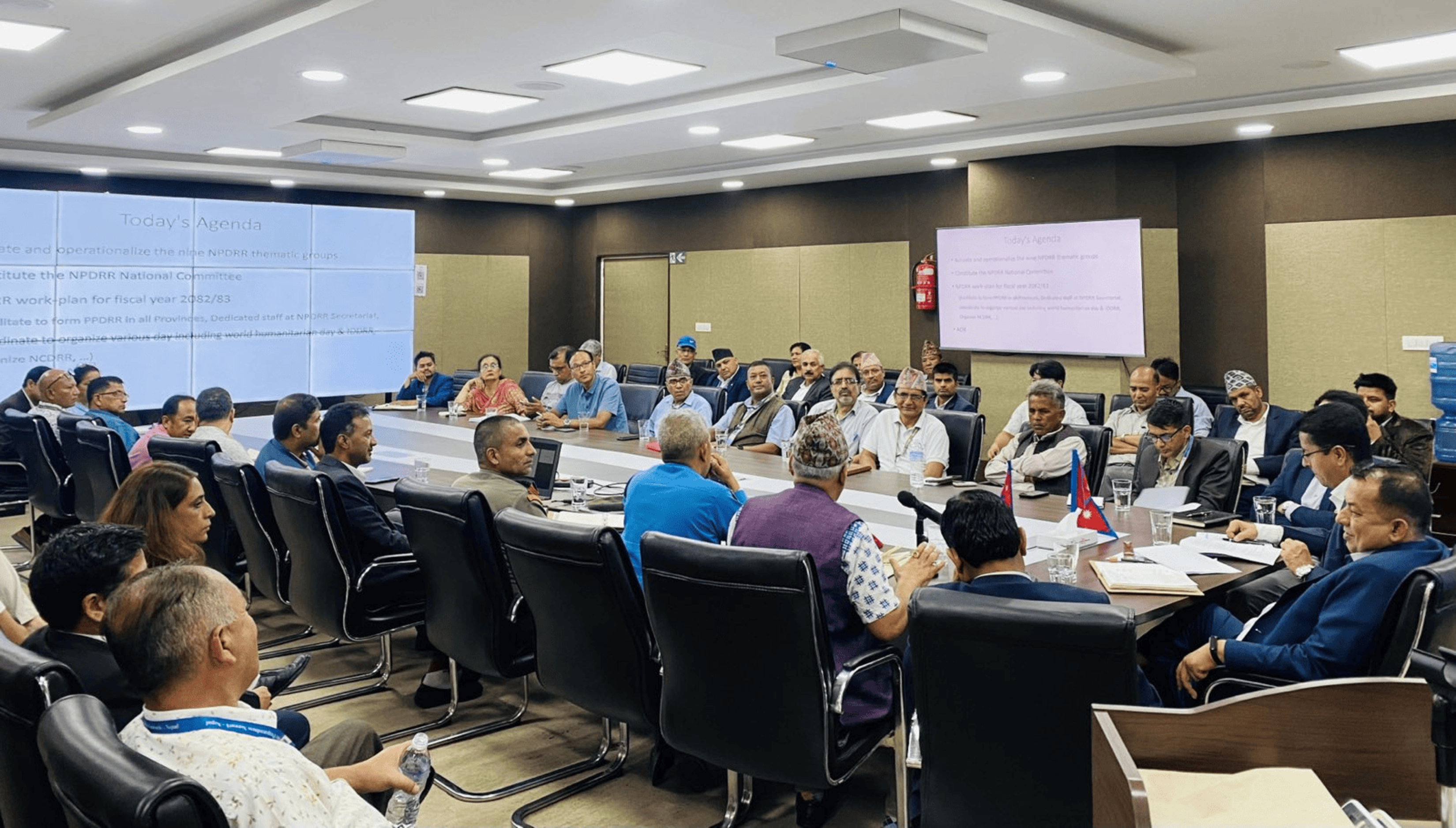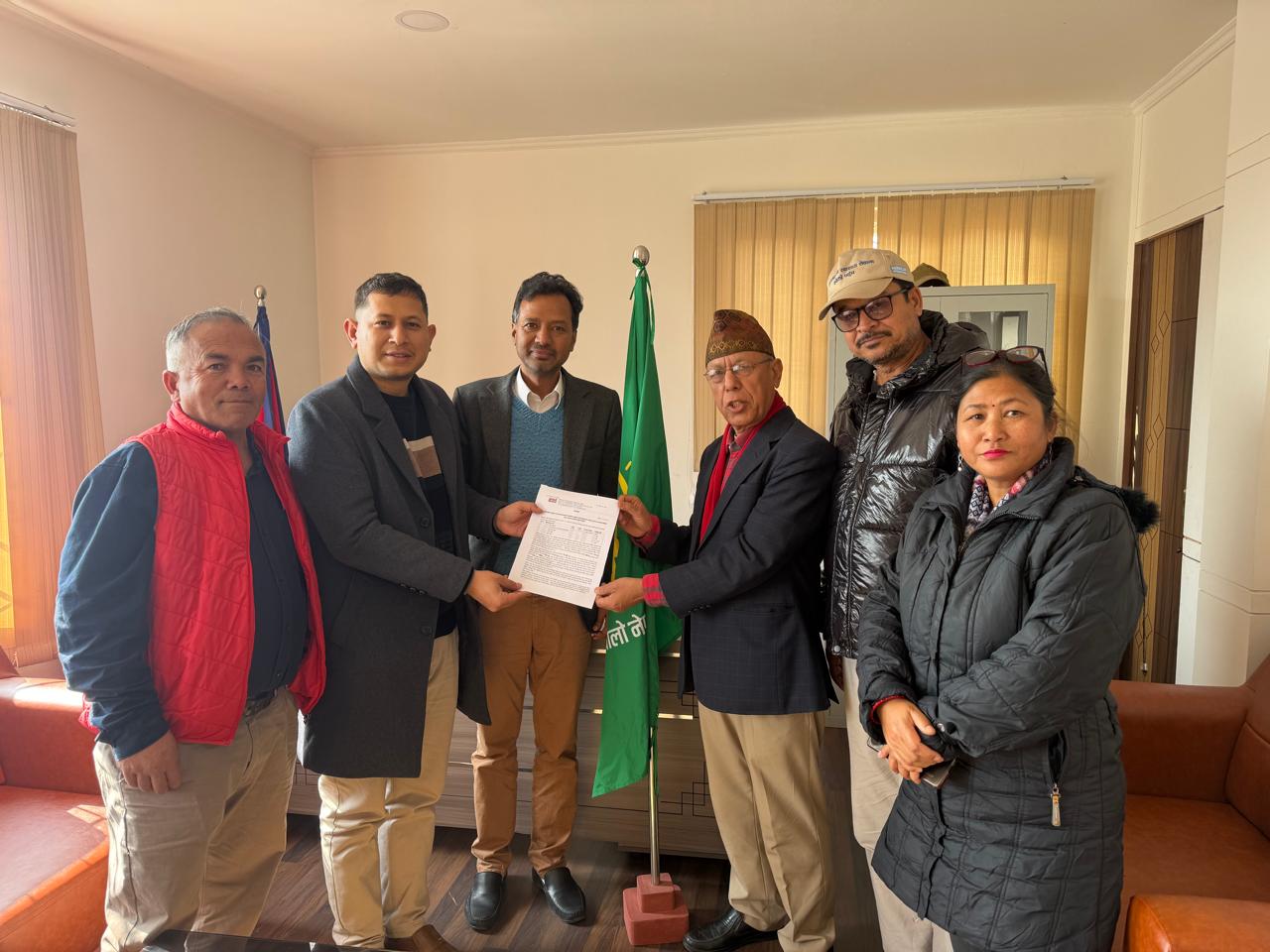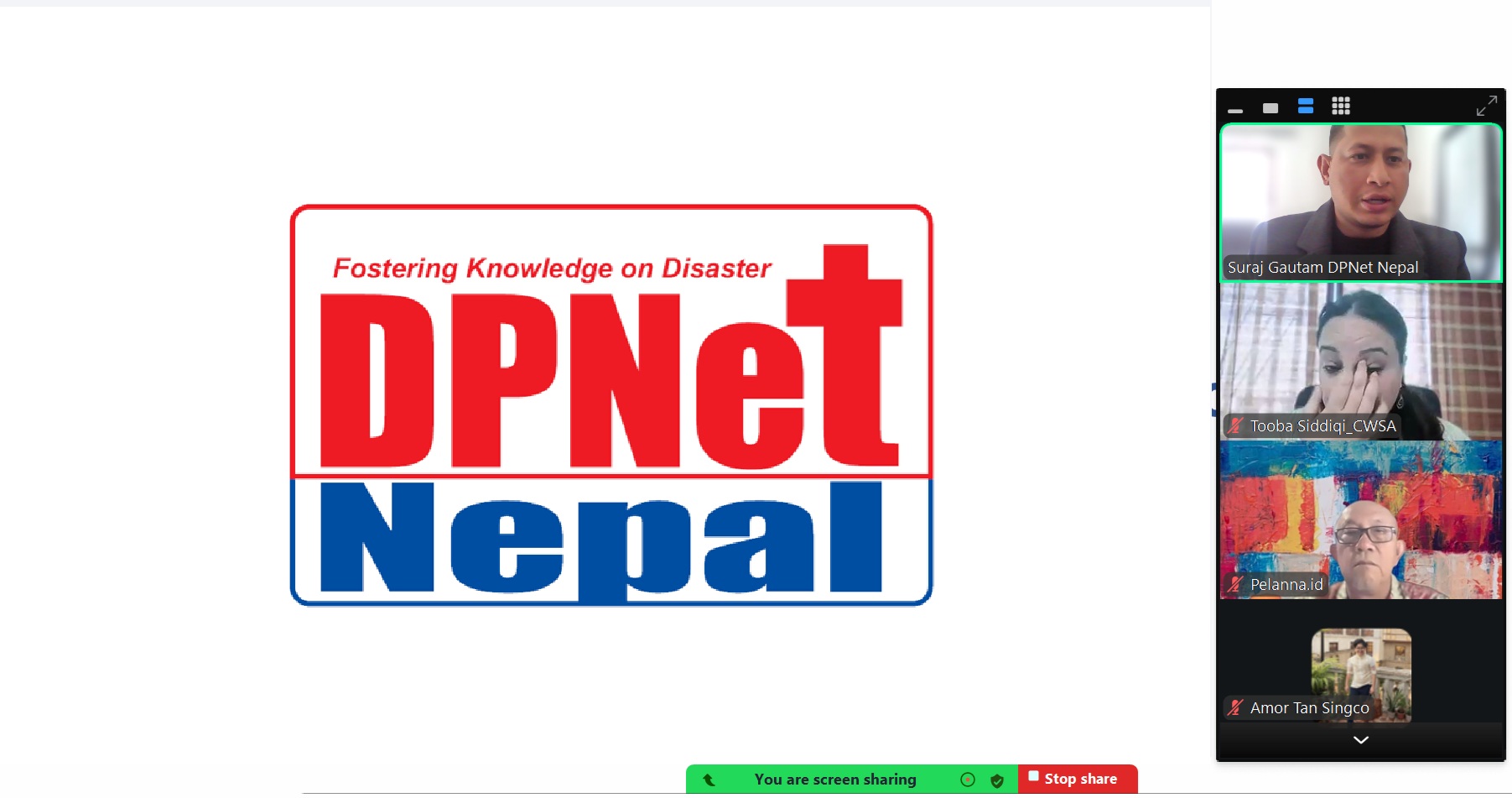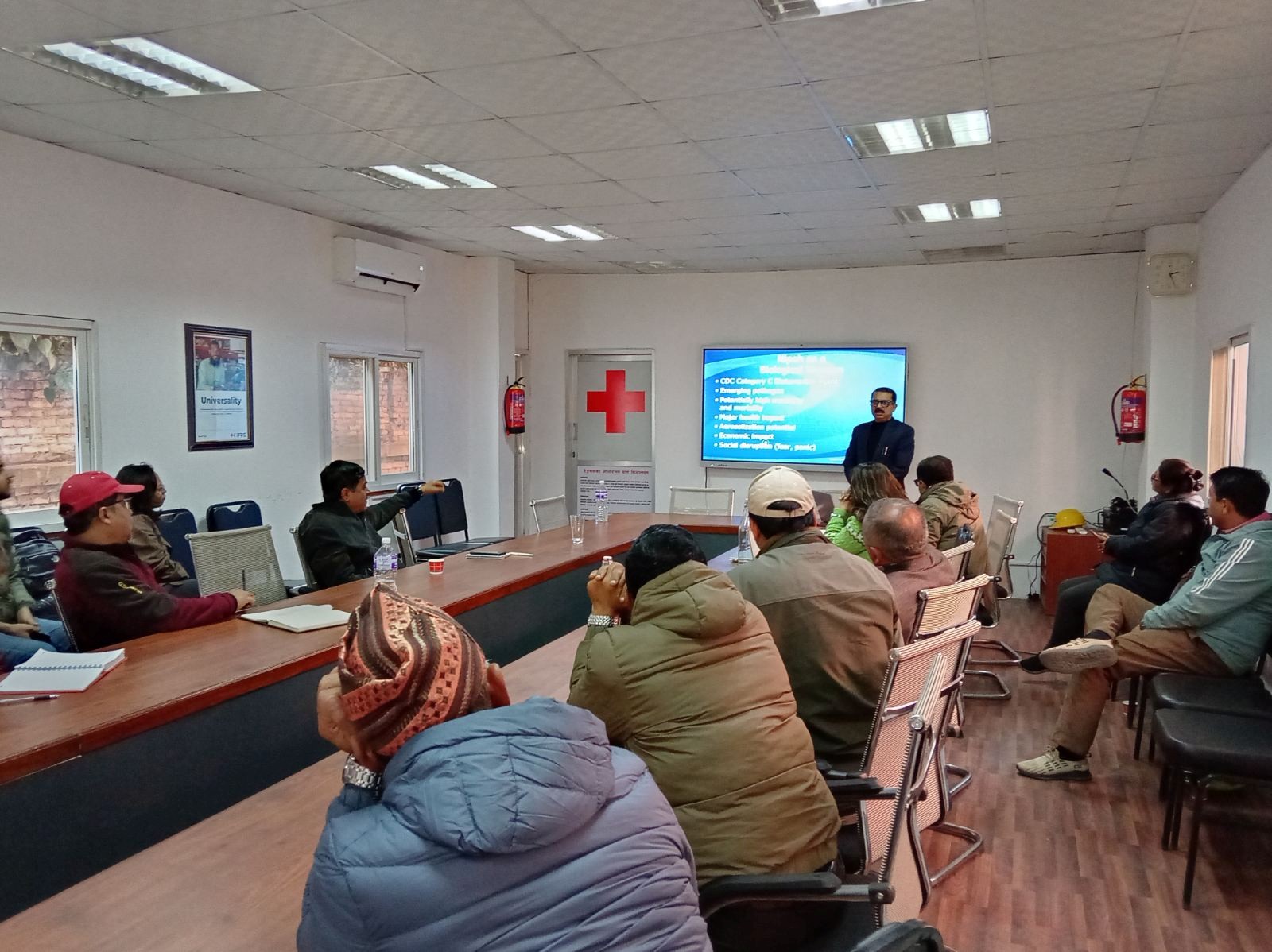NPDRR Meets to Revitalize Thematic Committees and Finalize the New Fiscal-Year Programme

The National Platform for Disaster Risk Reduction (NPDRR) opened the new fiscal year with a high-level meeting on 7 July 2025 at the NDRRMA. Chaired by NDRRMA Chief Executive and NPDRR Chair Dinesh Bhatt, the gathering drew senior officials from the Ministry of Home Affairs (MoHA) Dr. Tok Raj Pandey, line ministries, security forces and provincial governments, as well as representatives of United Nations agencies, bilateral donors, international and national NGOs, the private sector, academia, the media and disaster-affected communities.
NPDRR Member-Secretary Dr Raju Thapa, who also chairs the Disaster Preparedness Network–Nepal (DPNet), delivered a detailed presentation on the evolution, structure and recent achievements of the platform. Tracing the concept back to the UN’s global and regional DRR platforms, he shared that Nepal formally constituted the NPDRR in 2013 to ensure international commitments are met at home. “Our strength lies in breadth,” he said, pointing to the platform’s nine thematic groups, government, semi-government bodies, UN and donors, INGOs, NGOs/CBOs, academia, the private sector, media and affected communities, which enable a “whole-of-society” approach. Dr Thapa also shared NPDRR’s coordination of Nepal’s common position paper for the 2025 Global Platform for DRR, its facilitation of nationwide celebrations of World Humanitarian Day and International Day for Disaster Risk Reduction, and its role as secretariat for emergency knowledge-sharing during disaster events.
Following vigorous discussion, the meeting endorsed four headline decisions:
- Re-energise all nine thematic groups. The secretariat will provide technical back-stopping to ensure each cluster meets regularly and feeds concrete actions into the national DRR agenda.
- Form National Committee. The chair was authorised to nominate five expert members, completing the NPDRR National Committee and broadening its technical base.
- Expand the architecture to the provinces. By mid-2026 NPDRR will facilitate the establishment of Provincial Platforms for DRR (PPDRR) in all seven provinces, mirroring the national model and strengthening vertical linkages.
- Approve the FY 2082/83 work plan. Key milestones include:
- Hosting the Fourth National Conference on Disaster Risk Reduction;
- Leading national-level observances of World Humanitarian Day (19 August) and International Day for Disaster Risk Reduction (13 October);
- Recruiting necessary staff for the NPDRR secretariat with partner support.
Chair Bhatt closed the meeting by expressing gratitude for the members’ active participation and pledging that the secretariat would work on implementation of the decision. He emphasised that the day’s decisions marked a shift from discussion to concrete action and noted that, by energising each thematic group, establishing provincial platforms and addressing staffing gaps, Nepal would strengthen its ability not only to respond to disasters but also to mitigate risks in advance.











